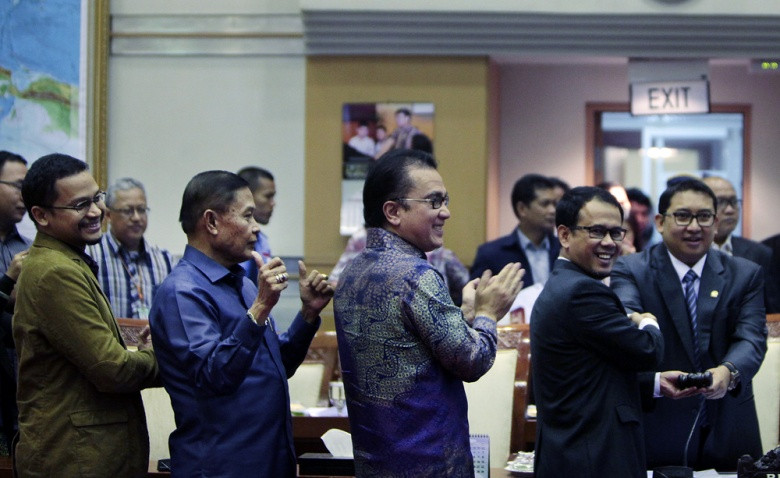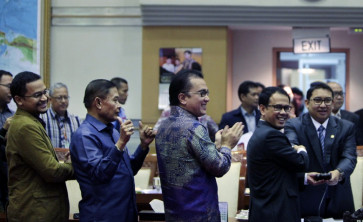Popular Reads
Top Results
Can't find what you're looking for?
View all search resultsPopular Reads
Top Results
Can't find what you're looking for?
View all search resultsPersonalizing parties makes for fragile coalition
The decisions and political preferences of a party as an organization with vertical and horizontal structures simply follow the preferences of party leaders, without any inclusive decision-making processes.
Change text size
Gift Premium Articles
to Anyone
T
oday we are witnessing postelectoral politics dominated by coalition dynamics among parties winning seats in the 2019 general elections, especially within the winning coalition of President Joko “Jokowi” Widodo.
On the one hand, Prabowo Subianto, Jokowi’s rival since the 2014 presidential election and the most prominent personification of anti-Jokowi sentiments, either met with Jokowi or approached winning party leader Megawati Soekarnoputri of the Indonesian Democratic Party of Struggle (PDI-P). Such maneuverings from the elite generate uncertainty about both the short-term and long-term future of coalition-building in Indonesia.
The Gerindra Party followed Prabowo’s maneuver by dramatically shifting its public language, no longer strongly criticizing Jokowi’s administration. On the other hand, seemingly without the initiative or influence of Megawati, four leaders of Jokowi’s coalition parties that won seats at the House of Representatives for the 2019-2024 term consolidated themselves.
Surya Paloh, leader of the Nasdem Party, initiated a leaders’ meeting of the other three parties (Golkar, National Awakening Party PKB and United Development Party, PPP) at his party headquarters in Central Jakarta — known as the “Gongdangdia Camp” — when Prabowo visited Megawati’s house at nearby Jl. Teuku Umar, the “Teuku Umar Camp”.
The National Mandate Party (PAN), however, seems to have dissenting opinions among the chief of its executive board, the current speaker of the People’s Consultative Assembly (MPR), Zulkifli Hasan, and the party’s patron Amien Rais on whether to align themselves with Jokowi’s second administration.
The Democrats of former president Susilo Bambang Yudhoyono are still biding by his traditional wait-and-see stance after the public learned of Prabowo’s maneuvers ahead of Jokowi’s second term. It is only the Prosperous Justice Party (the Islamic PKS) that lacks options other than maintaining its anti-Jokowi line.
Why do coalition dynamics always occur so fast after electoral results are announced in Indonesia, even preceded by such heated polarization between Jokowi’s and Prabowo’s camps? Why do supporting and opposing camps change rapidly? Three theses may explain this phenomenon. First, scholars on Indonesia (such as the studies of Dan Slater published in 2004 and Kuskridho Ambardi in 2009) agree that Indonesian politics is trapped in cartelization.


















